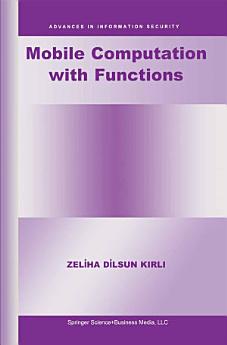Mobile Computation with Functions
ഈ ഇ-ബുക്കിനെക്കുറിച്ച്
Functional languages are known for their well-understood computational models and their amenability to formal reasoning. They also have strong expressive power due to higher-order features. Functions can flow from one program point to another as other first-class values. These facts suggest that functional languages can provide the core of mobile computation language. Functions that represent mobile agents and formal systems for reasoning about functional programs can be further exploited to reason about the behavior of agents.
Mobile Computation with Functions explores distributed computation with languages which adopt functions as the main programming abstraction and support code mobility through the mobility of functions between remote sites. It aims to highlight the benefits of using languages of this family in dealing with the challenges of mobile computation. The possibility of exploiting existing static analysis techniques suggests that having functions at the core of mobile code language is a particularly apt choice. A range of problems which have impact on the safety, security and performance are discussed. It is shown that types extended with effects and other annotations can capture a significant amount of information about the dynamic behavior of mobile functions, and offer solutions to the problems under investigation. This book includes a survey of the languages Concurrent ML, Facile and PLAN which inherit the strengths of the functional paradigm in the context of concurrent and distributed computation. The languages which are defined in the subsequent chapters have their roots in these languages.
Mobile Computation with Functions is designed to meet the needs of a professional audience composed of researchers and practitioners in industry and graduate level students in Computer Science.







